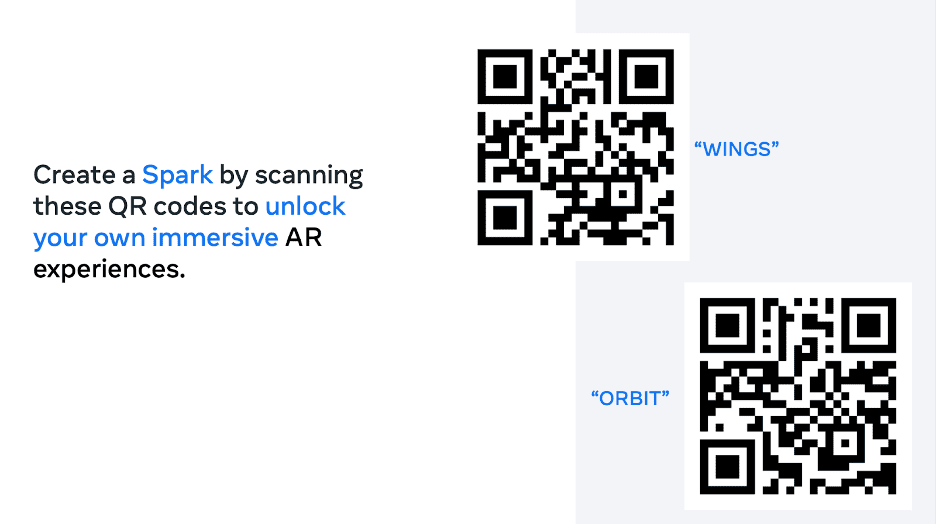Skift Take
As the metaverse takes shape, travel brands are exploring how they can unlock the potential of emerging applications for these virtual worlds to create innovative ways for travelers to discover new destinations, experiences, meeting venues, and lodging options.
This sponsored content was created in collaboration with a Skift partner.
Is your travel brand ready for the metaverse? While the vision of a fully immersive virtual world may seem distant, we’re already experiencing aspects of the metaverse in our daily lives today, including applications supported by augmented reality (AR) and virtual reality (VR). Anyone who has played smartphone games, used fun AR effects and filters on Instagram, or even placed virtual furniture in their apartment using an app has tiptoed into the early metaverse.
“We believe the metaverse will be the biggest opportunity for modern business since the creation of the internet,” said Colleen Coulter, head of industry for Meta. “It will be especially valuable to the travel industry, which is driven by immersive, meaningful, and sensory-filled experiences — all characteristics that lend themselves extremely well to what the metaverse offers.”
What Exactly Is the Metaverse?
At its core, the metaverse comprises a variety of digital spaces that can connect people, businesses, and creators who aren’t in the same physical space. Ultimately, the metaverse isn’t likely to become a separate, parallel reality. It will more likely evolve as an integration into our everyday lives, much like the mobile internet and the online world before it.
When it comes to travel, the metaverse may be able to deliver some of the sights and sounds of a place, but experiences like inhaling the salty ocean air, tasting a local dish, hiking to a waterfall, or shaking hands with a new friend will always be better in person.
“The metaverse isn’t about replacing in-person experiences,” Coulter said. “It’s about making what we do online better and more meaningful. It will enhance the feeling of being close to one another, regardless of physical distance, like teleporting a friend or family member who is unable to travel to join your safari in South Africa.”
According to Coulter, lesser-known destinations will be able to attract more visitors by helping people “test out” the destination via augmented or virtual reality, and travel attractions will be enhanced with new immersive experiences, such as enabling someone who is visiting ancient ruins to envision a bustling town square.
“Many experiences in the metaverse won’t be fully realized for five to 10 years, but it’s critical that travel brands start building the muscle now to quickly adapt to new technologies as they become available,” Coulter said.
Building the Metaverse Muscle
While the metaverse continues to take shape, there’s plenty of room for travel brands to experiment with its applications today. By connecting with customers where they are and exploring emerging formats like AR and VR, forward-looking travel companies can develop innovative and creative ways to promote discovery.
“Businesses are using our tools to build more brand love and get closer to their customers, which is critical at a time when traveler loyalty is up for grabs,” Coulter said. “Travel brands can use AR filters to help travelers envision themselves in a new destination, at a resort, or in a premium airline cabin, tapping into travelers’ wanderlust. They can also develop non-fungible tokens (NFTs) to reward their most loyal customers with limited edition digital art or access to unique experiences. To enhance existing travel experiences, they can use spatial audio or immersive visuals to serve as a virtual concierge, offering tours around select cities.”
Within VR, Coulter said, “travel brands will be able to take the level of immersion one step farther to allow travelers to truly step into a new experience, be it exploring an oceanside resort, speaking face to face with a travel advisor while miles apart, or participating in an exclusive concert.”
Partnering With Creators
One relatively easy way for travel brands to start piloting innovative, shareable metaverse experiences is to partner with content creators who are already using Meta’s platforms, whether short-form video on Instagram Reels, AR experiences through the Spark AR Studio, or interactive applications on Horizon Worlds, where creators and brands can build unique virtual spaces, interactive experiences, and immersive games.
Travel brands can work with a third party to build a custom “world” within Horizon Worlds — and they can leverage a thriving community of over 25,000 creators who are innovating with the technology today. Recently launched Meta Horizon Worlds experiences from well-known brands demonstrate how these creators are helping brands inspire and engage with customers.
Leveraging the Spark AR platform is another immediate way for travel brands to experiment metaverse activations. Earlier this year, several Spark creators collaborated on Coachellaverse, a virtual gateway to the Coachella Valley Music & Arts Festival, producing innovative AR effects that generated more than 100,000 opens on Instagram (scan the QR codes below for two examples).

“We know that many consumers trust the voices of creators, even more so than brands,” Coulter said. “This level of trust will likely continue into the metaverse, making them a key partner to help brands connect with travelers through authenticity, creativity, and relevance.”
A Shared Vision for the Future
Meta is sharing its early thinking and imagining what the future of the metaverse might look like so it can co-create an inspiring vision with its partners in the travel industry.
“We expect the investments we’ve made over the years in communities, creators, and commerce will be crucial components of the metaverse,” Coulter said. “The more we can help travel brands succeed across those spheres today, the more we can help them be successful in the future. ”
Travel brands taking their first steps into the metaverse should view it as an extension of and a complement to the work they already know how to do best — building deeper connections, lasting relationships, and better travel experiences.
“We know people place tremendous weight on the travel decisions they make given the precious time and money they dedicate to travel,” Coulter said. “The metaverse will empower people to make more informed decisions to make the most of their travel experiences.”
Learn more about how you can get started in the metaverse here.
This content was created collaboratively by Meta and Skift’s branded content studio, SkiftX.
Have a confidential tip for Skift? Get in touch
Tags: data and discovery, meta, metaverse, SkiftX Showcase: Technology, Travel Trends

